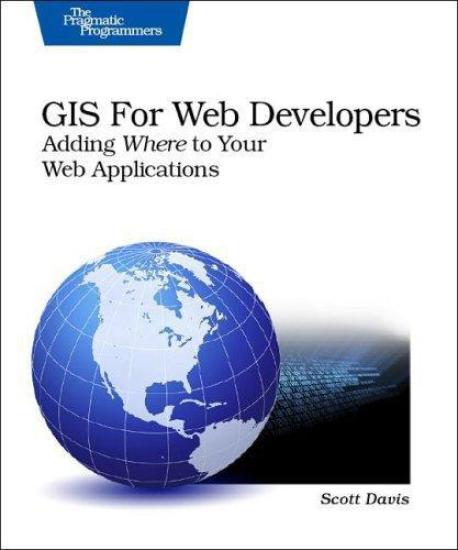
Summary:
There is a hidden revolution going on: geography is moving
from niche to the mainstream. News reports routinely include
maps and satellite images. More and more pieces of equipment
cell phones, cars, computers now contain Global Positioning
System (GPS) receivers. Many of the major database vendors
have made geographic data types standard in their flagship
products.
GIS for Web Developers introduces Geographic
Information Systems (GIS) in simple terms and demonstrates
hands-on uses. With this book, you'll explore popular
websites like maps.google.com, see the technologies they use,
and learn how to create your own. Written with the usual
Pragmatic Bookshelf humor and real-world experience,
GIS for Web Developers makes geographic programming
concepts accessible to the common developer. This book will demystify GIS and show you how to make GIS
work for you. You'll learn the buzzwords and explore ways to
geographically-enable your own applications. GIS is not a
fundamentally difficult domain, but there is a barrier to
entry because of the industry jargon. This book will show you
how to "walk the walk" and "talk the talk" of a
geographer. You'll learn how to find the vast amounts of free
geographic data that's out there and how to bring it all
together. Although this data is free, it's scattered across
the web on a variety of different sites, in a variety of
incompatible formats. You'll see how to convert it among
several popular formats including plain text, ESRI
Shapefiles, and Geography Markup Language (GML). With this book in hand, you'll become a real geographic
programmer using the Java programming language. You'll find
plenty of working code examples in Java using some of the
many GIS-oriented applications and APIs. You'll be able to:
Find free sources of GIS data on the web Browse GIS data
using open source desktop viewers Manipulate GIS data
programmatically Store and retrieve data using
geographically-enabled databases Explore free web toolkits
like Google Maps Publish and consume web services using Open
Geospatial Consortium (OGC) interfaces Scott Davis is a senior software engineer and instructor
in the Denver, Colorado area. He has worked on a variety of
Java platforms, from J2EE to J2SE to J2ME (sometimes all on
the same project). He is a frequent presenter at national
conferences and local user groups. He was the president of
the Denver Java Users Group in 2003 when it was voted one of
the top ten JUGs in North America.
About the Author